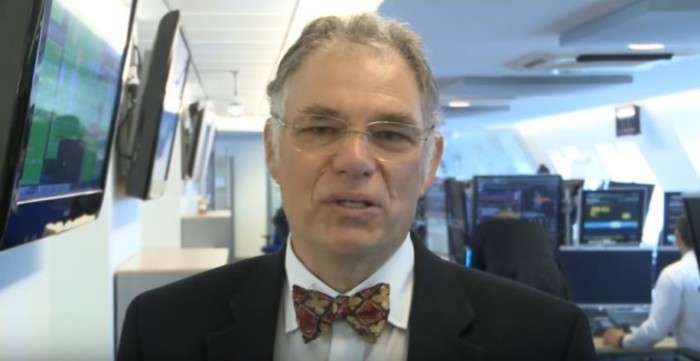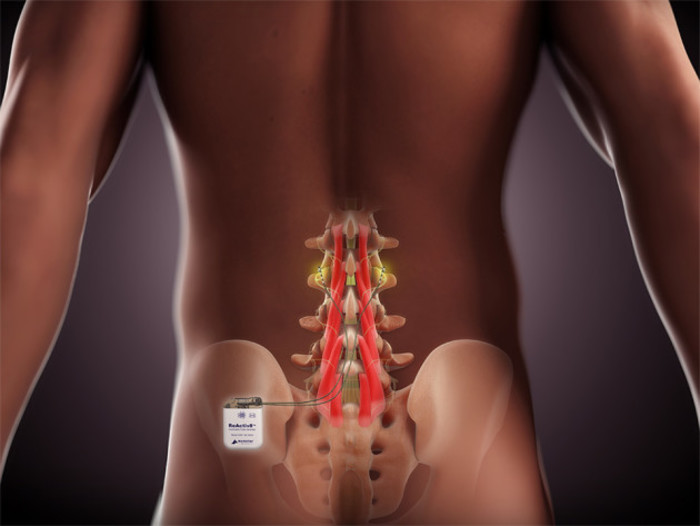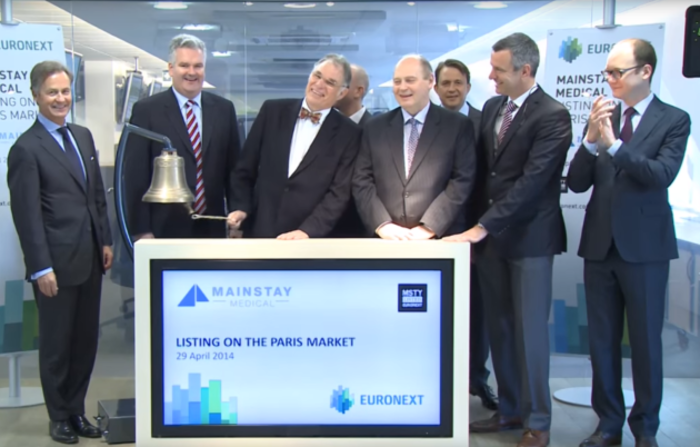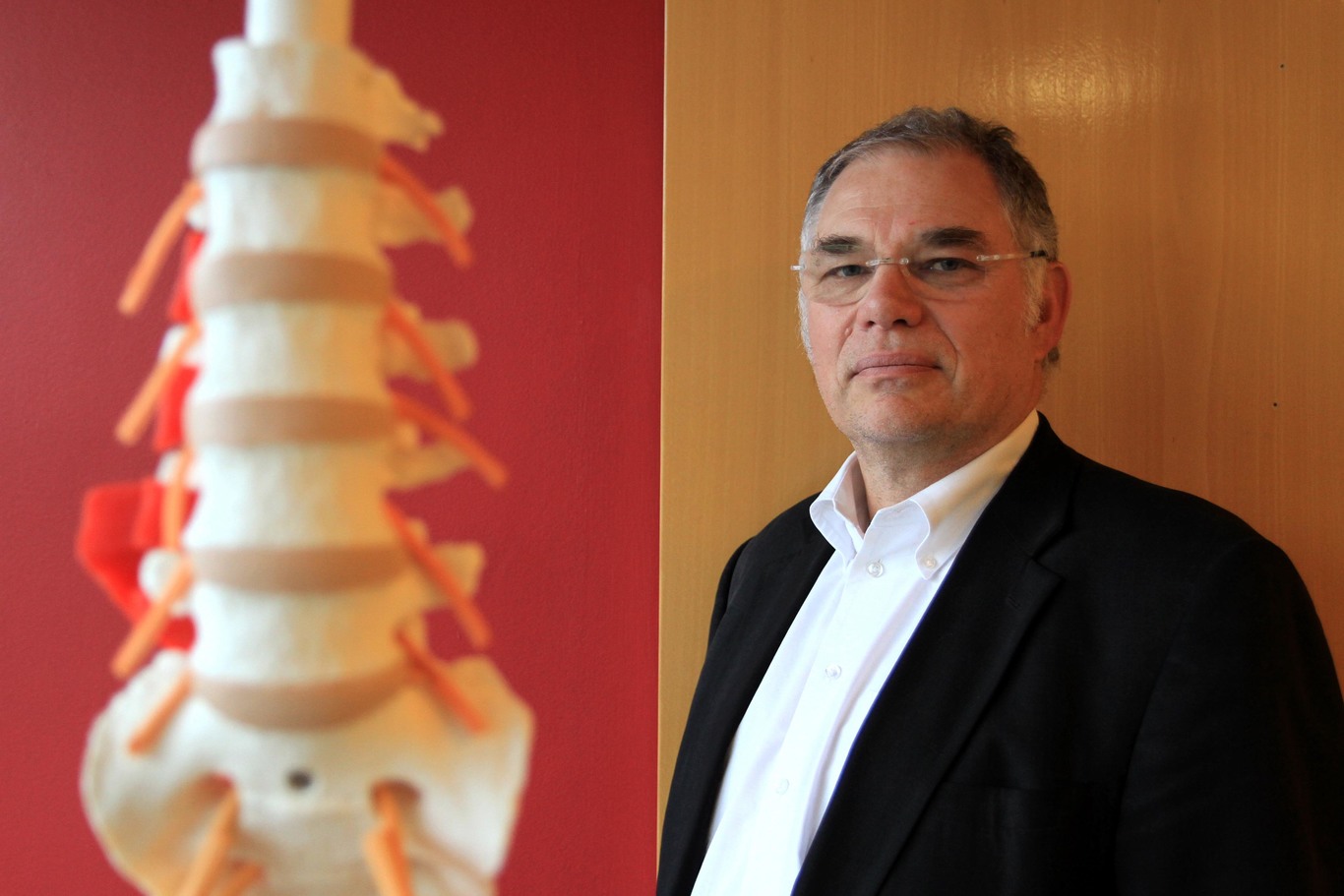'I've had two great successes, two modest successes and one catastrophe'
Over three decades in medtech has taught this executive to be careful who he takes funding from.
MY PASSION IS the business of science, and the science of business – and the best way to characterise what I love to do is to build things.
I’ve been in the medtech industry my entire career, which is over 35 years, and I’ve worked on many interesting, and frankly, life-changing devices for lots of people.
My first degree was in electronics and then I did a master’s degree in biomedical engineering at the University of Melbourne in Australia in the late 1970s.
I started working in hospitals for a few years, and then the first company I worked for was Cochlear, which developed an implantable prosthesis that gave hearing back to people who were completely deaf from nerve deafness.
I’ve worked as chief executive or chairman at seven medical device companies in four countries, including four public companies, and I’ve brought dozens of medical devices to the global market. I have also worked in several other companies at other senior levels.
Throughout my whole career I’ve always navigated towards medtech because it’s one of the biggest of engineering challenges – it’s not rocket science, it’s actually more difficult and interesting.
Rocket science deals with mechanics, physics and astrophysics, while medtech deals with mechanics, engineering and physics, but also biology and human interactions and regulatory environments.
From an engineering perspective, medical devices and particularly implantable devices are really the Mount Everest of any type of engineering.
 Peter Crosby
Peter Crosby
Learn from mistakes
The way I characterise my career is I’ve had two great successes, two modest successes, one sideways and one catastrophe. Mainstay, my current company, looks very exciting, but the journey is not over yet.
So I’ve made plenty of mistakes, as we all have. Fortunately as humans we have selective memories, because if we didn’t we would go into a corner and cry.
Success or failure is an opportunity for learning and I think you should take the lessons from failure, but don’t dwell on the mistakes. You also learn from the good outcomes and the steps you took to be prepared for that to happen.
The catastrophe I had happened at a public company I was running in Australia. It was a great company that produced a device like an artificial heart for people facing possible death from heart failure.
Unfortunately, we got crushed during the global financial crisis when we were unable to raise capital towards the end of 2008.
It was hugely disappointing, not just personally, but for our shareholders, our staff and most importantly for the patients who were very hopeful about the product we were making.
Part of the learning from that is to be very careful how you manage your shareholder base. You need to make sure you have shareholders who will stand with you whether the times are good or challenging.
That is something I think many early stage companies are not very good at. They take whatever capital they can without being more strategic about taking the right capital.
It can add costs, but it’s often better in the long-term to take smart money rather than lots of quick – or dumb – money.
Idea for Mainstay
Mainstay is the latest medtech venture I’m involved in. We’re very excited about it and greatly encouraged by our progress to date.
We’re developing a device – called ReActiv8 – that’s an implantable restorative neurostimulation system to treat disabling, chronic low back pain.
The original idea for the device was developed by a physician and entrepreneur called Danny Sachs, who is based in the US. Danny is a guy I’ve known for about 15 years prior to the start of the company.
When he came up with this idea and tried to raise capital for it, most of the investors said, “It’s a great idea, but you need to put a team together and in particular you need to find a CEO who has done this before.”
So I linked up with Danny in early 2009, and I worked for sweat equity for over a year – which means I didn’t get paid. Eventually we got our first financing round in July 2010 and I started to build the company in Minneapolis, USA.
 The ReActiv8 back pain product
The ReActiv8 back pain product
Our first goal was to test the viability of the venture. That meant we had to run a feasibility clinical study, which was run primarily in Europe – frankly because Europe was easier to get started with a clinical trial than most other places.
We had some early success and went about seeking new capital and received series B financing from an Irish venture capital firm called Fountain Healthcare Partners.
One thing led to another and we eventually moved the headquarters of Mainstay to Dublin in 2012 and I personally moved a year later.
The way I see the finance piece is that the first round is to fundamentally answer the question, ‘Does this idea work?’ The second round then is to determine if you can make the product, and the third is to find out if you can bring that product to market.
Every stage after that is about commercialisation.
Off a cliff
After we got the series B financing, we started formal clinical trials with the product in Australia and Europe and had some good traction.
More recently in 2014, we took the company public on the enterprise securities market of the Irish Stock Exchange and also Euronext in Paris.
The main reason for the IPO was to raise capital, because since 2010, after the global financial crisis, the venture capital industry for medical devices essentially collapsed, with only a few VC firms remaining with money to invest.
There were so many US venture capital firms that disappeared over the next few years, which meant there was a drought of early-stage funding. So we had to be pretty creative about how we could get by.
At that time, certainly from around 2012, Euronext in Paris became a sought-after destination for medtech companies seeking capital, so it made sense for us to follow that path too.
We were successful and we raised about $25 million in capital out of the IPO process – but it wasn’t easy.
I’ve done over 30 capital raises for various companies in my life and they’re all difficult. Every single one has its own little twists and turns – the macroeconomic environment is always different.
But I had been the CEO of three prior public companies, so I came into this process with a bit of ammunition from experience that I think made the process a little bit better.
 Mainstay Medical team at Euronext in Paris
Mainstay Medical team at Euronext in Paris
Plans
Even though I love medtech, it’s tough to run a startup in a sector which requires several years of research and development to get an idea off the ground.
Sometimes it’s difficult to keep sight of the end goal through the ups and downs, but generally the people who work in our company, and in this field, tend to have long horizons.
We look at things five, 10 or even 15 years from now, because in medtech you have to.
In the last few months, after years of research, we finally started commercialising Reactiv8, and a couple of days ago announced the first commercial sale of the implant in Ireland.
The biggest potential attractive market for us next, like most medical device companies, is the US. It’s the largest homogeneous market and has the largest expenditure on healthcare of any single market in the world.
So we are approaching the US market through the regulatory process with the Food and Drug Administration (FDA), and we are currently conducting a clinical study. It’s an international study to get the data to seek regulatory approval in the US and we expect results next year.
If they are as good as we hope, and expect, we will use that not only to apply for regulatory approval in the US but also to expand commercialisation in Europe and beyond.
Peter Crosby is the chief executive of Mainstay Medical. This article was written in conversation with Killian Woods as part of a series on business mistakes and what can be learned from them.
If you want to share your opinion, advice or story, email opinion@fora.ie.






